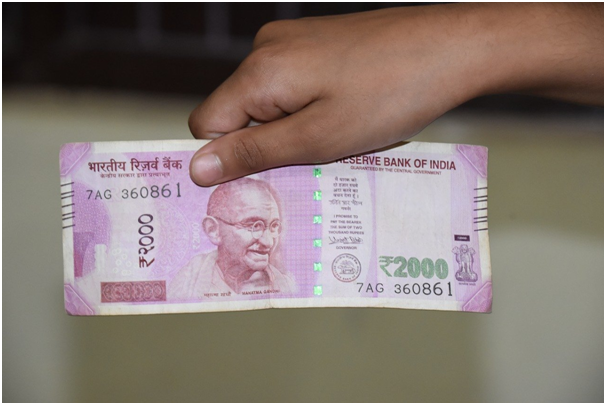In India, there are only eleven divorces per 1,000 marriages, this data was registered by the service concentrated on uncontested affordable divorce preparing documents and forms for it all over the world. Europeans make fun of the fact that strong unions exist in the country because it is customary for Indians to give a husband a gun at a wedding and to draw a red dot on his forehead to his wife. The Bindi (that same red dot) symbolizes the fortune of a married woman and reminds her of the need to observe the sanctity of marriage.
By Indian standards, being divorced means about the same thing as being a leper. Divorce in India is a shame. If family life is not well done, the spouses may depict a happy family. They do it from different motives. It may happen because of children, unwillingness to share the acquired property, fear of condemnation by relatives and friends. Oddly enough, but the contractual marriages arranged by the parents are more durable than those that were concluded for great love.
Hindu religious leader and preacher Srila Prabhupada mentioned that the word “divorce” did not exist in any Indian language before the British arrived in India. There is no such thing in Vedic culture. Indians that peace in the family, and throughout human society, lies in the hands of women. If she is unruly, the family will collapse.
A woman who left her husband becomes an outcast in society. In her next birth, she will have to be born out of the womb of a jackal, and she will be plagued with illness, as a punishment for infidelity to her husband. According to the brahminical principles, children suffer the most during divorce. Having received a deep psychological trauma, they subsequently strike back against society. Girls who grew up with one of their parents become more independent and are unlikely to be able to become good wives. Boys from single-parent families have to grow up faster and since their childhood does low-paid work.
Prabhupada said: “If society is filled with such children, the whole of humanity can degrade.” The preacher calls divorce and remarriage animalism, meaning that the change of sexual partners is allowed to animals, but not to people. He equated the remarriage of a woman to the indulgence of prostitution. A woman who married a second time has illicit sex, which means that she has violated the sacred oath all her life to be faithful to her religious husband. According to Vedic law, marriage vows are lifelong. In the Manu-Samhita 9.46, it is said that it is impossible to free a woman from her oath given by her to be the faithful wife of her husband in no way. It is impossible either by paying money or by any legal or public renunciation (divorce).
Deeply religious people of India in all circumstances save the family, considering that the exact relationship between husband and wife is checked under challenging situations. Adherents of Krishnaism go to divorce in exceptional cases, fearing that a divorce may spoil karma for many reincarnations ahead. But if you can not do without a separation, spouses who profess different religions, in divorce cases, rely on the relevant laws. For Hindus, who constitute more than 80% of Indians, divorce occurs following the Hindu Marriage Act of 1955.
The 1939 Law on Marriage Law governs the next largest group – Muslims. According to which the husband can unilaterally enforce the termination of the marriage by uttering the word talk. There are only 2% of Christians in India. When terminating a union, they rely on the chapters of the two laws adopted in 1869 and 1872. For Christians, divorce is also available from mutual consent after at least one year of separation.
The only form of marriage that allows for comparative ease of divorce is “asura.” In the case of the asura, the groom voluntarily donates the property to the relatives of the bride as much as it can. In other words, he buys his wife. Even though the women of the Indians did not hear about gender equality, it was believed that selling them was not good. This form of marriage is prevalent in lower castes and the impoverished representatives of the higher castes.
Asura was always the most fragile and allowed divorce on the initiative of his wife, although this happened very rarely. In other forms of marriage, the disintegration of the family was possible only on the action of the husband. Following the traditions of Hinduism, the husband had the right to divorce her if she had not had children for eight years of marriage, if she had only stillborn babies for ten years or if she had given birth only to girls for eleven years. A disrespectful attitude towards her husband was considered a valid reason for an immediate divorce. A woman who allowed herself a rude behavior towards her husband committed a grave sin, and for this reason, it was not necessary to wait a certain number of years.
The reasons for divorce in India can be adultery, desertion, cruelty, impotence, and chronic diseases. Adultery women are judged more strictly than men are. Defection means the absence of a husband or wife for three years and violation of cohabitation.
The attitude towards cruelty, as in the case of adultery, depends on the gender and is evaluated according to different standards. Mental and physical neglect and abuse are considered cruelty. For example, in 1994, in the Indian state of Andhra Pradesh, while hearing a divorce case, his wife was accused of refusing to wear a ritual necklace. It considers as a symbol of marriage in India. The court qualified her refusal as cruelty and allowed her husband to divorce.
The contentious divorce proceedings can last from eighteen months to several years. For a divorce by agreement, it is necessary to reach peaceful agreements between the two spouses regarding alimony and the absence of disputes concerning the upbringing of children. If the couple has no children and disagreements on the division of property, divorce by the agreement will take only a few months. If there are no children, but there is a property dispute or a desire to return the dowry (or get support from the husband for the rest of his life), the divorce may be delayed indefinitely. If there are children, then depending on the religion the spouses profess, they can be with either their mother or their father. The interests of the children and the financial capabilities of the spouses are not always taken into account in such cases.
An Indian woman might demand the annulment of a marriage if she was married before the age of fifteen. The young wife has the opportunity to gain freedom from family ties, referring to the violation of the law, but only if she is not eighteen years old yet. But there may be exceptions.
 Amazing India Blog Know India Better
Amazing India Blog Know India Better





